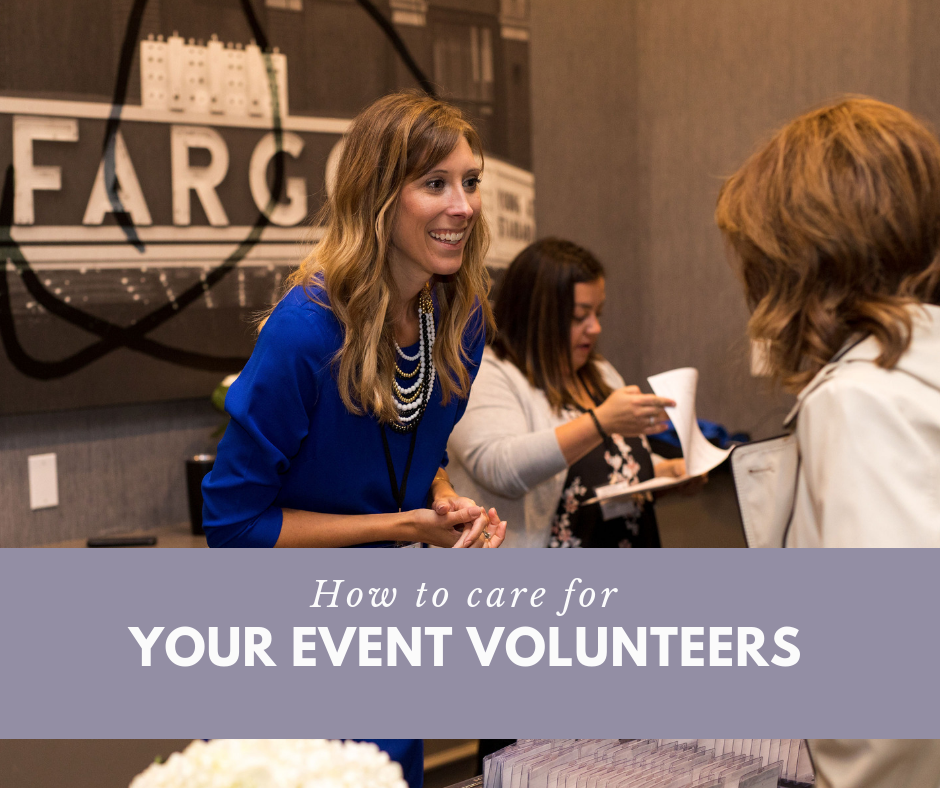|
Every event I’ve planned and worked relies on an important group of people to get the job done smoothly: volunteers. They work the registration table, as greeters, as traffic controllers, and more. And keeping them informed and feeling appreciated is one more thing you can do to make sure your event runs smoothly. I use the term “volunteer” broadly. Even if it’s a corporate event and you’re relying on paid staff to cover your needs, many of them may be serving in unfamiliar roles. For example, your staff graphic designer may be asked to help sponsors set up booths. Your payroll specialist may find herself greeting attendees. Whether you’re using employees, contracted folks, friends, family, or supporters, you need to clearly communicate your expectations and how their work fits into the day’s goal. Train Your Volunteers
It sounds counter-intuitive, but too often people expect too little of volunteers. We want them to show up for a period of time and then go on with their lives. Yet, asking them to invest a bit of time in training is one way you can ensure that everyone working at your event has enough information to do their job well. And, they’ll feel good about the time they spend doing it. Onsite training is usually easiest. If possible, ask your volunteers to meet a half hour before the event starts. This will give you enough time to communicate expectations, roles, and responsibilities. If onsite training isn’t possible (and, yes, that’s often the case), connect prior to the event in person or in writing. It’s much easier to tell the entire group important information than to share information in one-on-one settings. Training doesn’t mean hours of PowerPoint presentations and role-playing. The important thing is you tell people what you want them to do. Do not assume that people know what to do. Provide an overview or schedule of the event and key messages. Write a short job description for each role and hand these out. Even a sentence or two of description plus a contact who can be reached in case of an emergency or questions will make your volunteers and staff feel more comfortable and empowered. Assign Appropriate Roles Sometimes you need to a body to fill a role. But when possible, work to find the right person for the role. Even if volunteers aren’t paid, they need to be recruited with skills and strengths in mind. Not everyone is gifted at being a greeter or a host. You want someone who is friendly, warm, and flashes a willing smile to all attendees. However, someone who knows a lot of the attendees might get pulled into a long conversation with a single person and miss delivering a warm welcome to large groups of people. If you find a volunteer who can see what needs to be done (without being told) and the confidence to address those needs, hang on to that person. These are exceptional people who deserve recognition and special kudos. Invite People Don’t assume that asking someone to volunteer is a burden. Volunteering with your event is a great way to get someone more interested and involved in your organization or company. And, when done properly, volunteering can make someone feel valued and part of something exciting. Go ahead and invite people to be an integral part of your success. They can be past volunteers or, in the case of a corporate event, people from a different department. And, of course, be sure to show them how much you appreciate their time, skills, and effort. Can you offer a free ticket to the event? Or encourage them to take a break and eat? At the very least, take time to send a thank you. My favorite post-event activity is sending a handwritten note. If that’s not your thing, be sure to send a personalized email, text, or shout-out on social media. When people feel appreciated, they are more likely to help the next time you call. –Anita
0 Comments
Your comment will be posted after it is approved.
Leave a Reply. |
Reach PartnersYour partners in leadership. Categories
All
Archives
July 2024
|
|
|
Reach Partners, Inc
3330 Fiechtner Dr. Suite 100 Fargo, ND 58103-2321 701-271-8170 Copyright (C) 2024 Reach Partners Inc.
|

